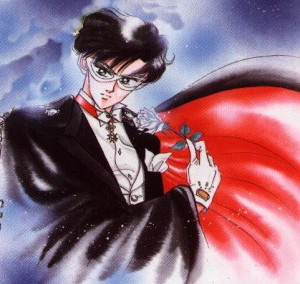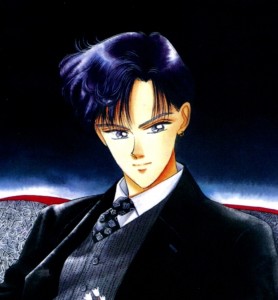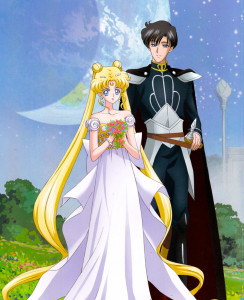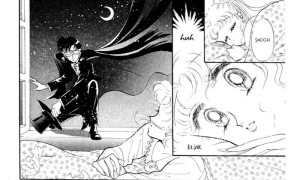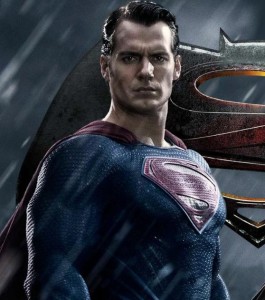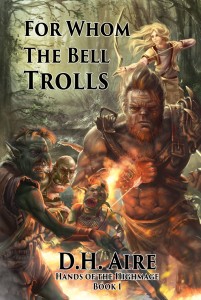A guest post by Jacqui Talbot
When I was ten, my uncle gave me a chemistry set, and with my first successful experiment, I was hooked.
There were a few less successful endeavors.
Like the time I decided to make a homemade stink bomb. Nothing too difficult. Just cut the heads off some matches and stick them in a bottle with some ammonia. Give it a swirl and then leave it for 3-4 days. Et voila! A perfect tool with which to prank my older siblings.
 That is, of course unless a certain person—who shall remain nameless—decided to alter the recipe for maximum stench, and then forgot about it, leaving the bottle in a kitchen cupboard for two weeks during one of the hottest summers on record. And if that nameless (and blameless) child’s stepmother happened upon said bottle, gave it a little shake, and then opened it…. You get the picture. I was grounded for a month and the kitchen was uninhabitable for almost that long.
That is, of course unless a certain person—who shall remain nameless—decided to alter the recipe for maximum stench, and then forgot about it, leaving the bottle in a kitchen cupboard for two weeks during one of the hottest summers on record. And if that nameless (and blameless) child’s stepmother happened upon said bottle, gave it a little shake, and then opened it…. You get the picture. I was grounded for a month and the kitchen was uninhabitable for almost that long.
And then there was the incident with that batch of super-charged homemade gunpowder. (I was trying to make my own fireworks and wound up losing the porch and my eyebrows in at the same time.)
The point is that I have two great loves in my life: chemistry and the written word.
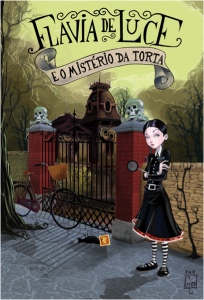 So, as you can imagine, when I discovered Alan Bradleys’ intrepid protagonist, Flavia de Luce, I was entranced. A beguiling cross between Pippi Longstocking and Sherlock Holmes, Flavia is an eleven-year-old sleuth with a passion for chemistry (specifically poisons) and a penchant for crime solving.
So, as you can imagine, when I discovered Alan Bradleys’ intrepid protagonist, Flavia de Luce, I was entranced. A beguiling cross between Pippi Longstocking and Sherlock Holmes, Flavia is an eleven-year-old sleuth with a passion for chemistry (specifically poisons) and a penchant for crime solving.
You can see why I love this kid.
She stars in seven novels, each one told in first person with some of the most beautiful writing I’ve ever read. To say that Bradley has a way with words is like saying Michelangelo was handy with a paintbrush. The way he crafts the language is mind-blowing. Here’s the first line of the fourth book in the series: I AM HALF-SICK OF SHADOWS:
“Tendrils of raw fog floated up from the ice like agonized spirits departing their bodies. The cold air was a hazy, writhing mist.
Up and down the long gallery I flew, the silver blades of my skates making the sad scraping sound of a butcher’s knife being sharpened energetically on stone.”
*Sigh* See what I mean?
If Flavia sounds like a character you want to meet, I recommend starting with book one in the series, THE SWEETNESS AT THE BOTTOM OF THE PIE:
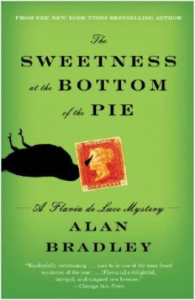 Reading one of Bradley’s books is like diving into a soft bed covered in silk sheets and down comforters. It’s like a hot bubble bath after a long day’s work.
Reading one of Bradley’s books is like diving into a soft bed covered in silk sheets and down comforters. It’s like a hot bubble bath after a long day’s work.
Just be careful when you dive in. Because when it comes to Flavia, you never know what lurks beneath.
But when it comes to memorable characters, that’s not really a bad thing, is it?
About the Author:
Jacqui Talbot is a book worm, devoted Whovian, and certified fantasy geek. When not pursuing her dream of becoming a full-time writer, she spends her time learning different languages (six and counting) and being a nuclear chemist. Her current projects include SPINNERS, a YA supernatural thriller set on the Choctaw Indian reservation where she grew up, and KARMA AND CHEMISTRY, a MG fantasy adventure featuring a twelve-year-old protagonist who uses science to battle dark magic.

